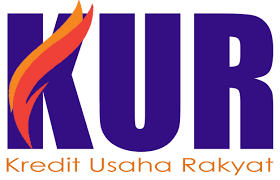Gov’t to Waive KUR Interest Payment for MSMEs Affected by COVID-19

Smallholder business credit. (Source: Coordinating Ministry for Economic Affairs)
The Indonesian Government has announced the decision to waive interest payments and postpone principal installments of Smallholder Business Credit (KUR) for micro, small and medium enterprises (MSMEs) affected by the COVID-19 outbreak for a maximum of six months.
The Government has also decided to relax KUR provisions by extending its term as well as raise the ceiling.
“This policy takes effect on 1 April 2020. The recipients of these policies must meet the assessment of their respective KUR distributors,” Coordinating Minister for Economic Affairs Airlangga Hartarto stated after an online coordination meeting of the MSME financing committee in Jakarta, Wednesday (8/4).
This decision, the Minister said, is the follow-up to the decision of the ministerial limited meeting on 20 March 2020 discussing President Joko “Jokowi” Widodo’s directive on the postponement of principal and interest payments for all KUR schemes affected by COVID-19 for six months.
The decision is also reinforced by Regulation of the Financial Services Authority (POJK) Number 11/POJK.03/2020, which among others states that credit or financing restructuring is carried out on credit or financing provided before or after the debtor is affected by COVID-19, including MSME debtors.
The existing KUR debtors affected by COVID-219, Airlangga said, will be given relaxation of the KUR restructuring provisions with a policy to extend the KUR term and/or a policy to add the ceiling limit, especially for Small KUR and non-production Micro KUR debtors.
In the meantime, for prospective KUR debtor, the relaxation is given in the fulfillment of administrative requirements for KUR submissions, such as Business Licenses, Taxpayer Identification Numbers (NPWP), and additional collateral documents until the situation improves. They can also access online KUR.
The criteria for KUR recipients who get special treatment are as follows:
- General Conditions: (a) credit quality as of 29 February 2020 namely: (i) collectability of performing loans (collectability 1 and 2) and not under restructuring period; or (ii) collectability of performing loans (collectability 1 and 2) and under restructuring period, can be provided stimulus under the condition that the restructuring runs smoothly according to the restructuring review and that there is no arrears in fund or principal interest; and (b) be cooperative and have good faith;
- Special Requirements: KUR recipients reduce business losses due to at least one of the following conditions: (a) the location of the business is in the COVID-19 affected area announced by the local government; (b) a drop in income or turnover due to a disturbance related to COVID-19; and (c) disruption to the production process due to the impacts of COVID-19.
For the record, the total accumulation of KUR distribution from August 2015 to 29 February 2020 amounted to Rp507.00 trillion, with an outstanding value of Rp165.30 trillion and a non-performing loan (NPL) ratio of 1.19%.
Meanwhile, KUR distribution as of 29 February 2020 reached Rp35.00 trillion or 18.42% of the 2020 target of Rp190 trillion.
The portion of KUR distribution in the production sector (non-trade) until 29 February 2020 was at 57.30% or Rp20.05 Trillion. In the production sector, the KUR was highly distributed to sectors of agriculture (28%), services (16%), and manufacturing industry (11%). (Coordinating Ministry for Economic Affairs PR/EN)
Translated by: Fairuzzamani Inayatillah
Reviewed by: M. Ersan Pamungkas








